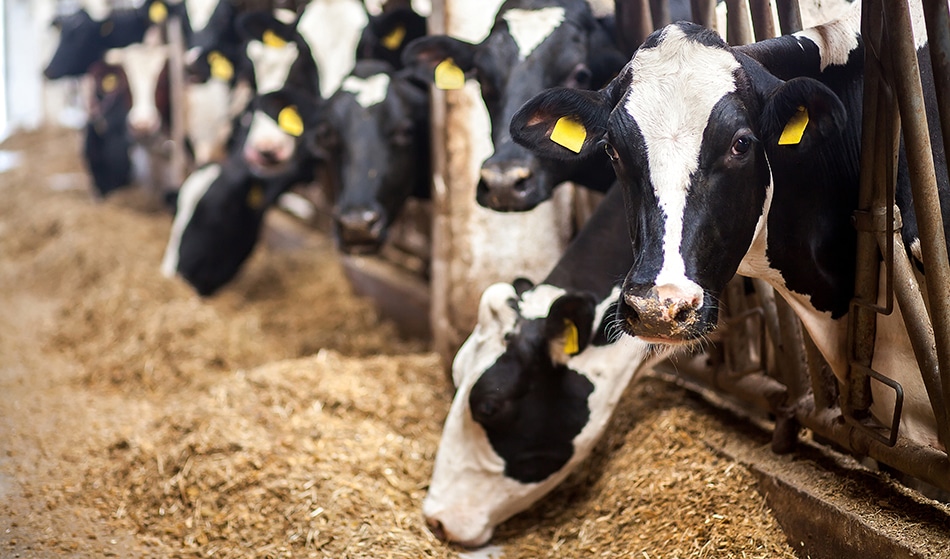Codex Mycotoxin-Producing Fungi Testing in Feed
Ensuring agricultural and animal feed safety is paramount to maintaining public health and the integrity of food supply chains. The Codex Alimentarius Commission (Codex) has established guidelines for mycotoxin levels in foods, including feedstuffs, as a means to protect consumers from harmful effects associated with these contaminants. Mycotoxins are toxic secondary metabolites produced by certain fungi that can contaminate crops during growth, harvest, or storage.
The testing of Codex mycotoxin-producing fungi in feed is crucial for regulatory compliance and ensuring product safety. This service aims to provide comprehensive analysis to identify the presence of these potentially harmful organisms and their associated mycotoxins. Our team uses advanced microbiological techniques and cutting-edge laboratory equipment to ensure accurate and reliable results.
Our testing protocol includes both qualitative and quantitative assessments, focusing on key mycotoxin-producing fungi species such as Aflatoxigenic Aspergillus, Fusarium, and others. This allows us to provide a holistic view of the feed quality by not only detecting the presence of these organisms but also quantifying their potential impact on animal health.
In this testing process, we employ strict laboratory protocols that adhere to international standards such as ISO/IEC 17025 for our accreditation and ISO 14001 for environmental management. These standards ensure that our methodologies are robust and reproducible, providing a consistent baseline for comparison across different batches of feed.
The importance of this testing cannot be overstated, especially in the context of animal health and welfare. Mycotoxins can cause various adverse effects ranging from reduced feed efficiency to life-threatening diseases. Our service focuses on not only meeting regulatory requirements but also exceeding them by providing actionable insights that help our clients maintain high standards of quality assurance.
Our testing process begins with sample collection, which must be representative and uncontaminated. After receiving the samples, they undergo rigorous preparation steps including homogenization and dilution to ensure accurate analysis. The selected fungi are then cultured under controlled conditions to allow for optimal growth, followed by identification using DNA sequencing techniques.
The identification of mycotoxin-producing fungi is crucial as it helps in understanding the potential risk posed by each isolate. Once identified, we analyze the samples for specific mycotoxins such as aflatoxin B1, fumonisin B1, and zearalenone using validated HPLC (High-Performance Liquid Chromatography) methods. These analyses are conducted according to international standards like ISO 25436 and EN 17801.
The results from these tests provide critical information that can be used for risk assessment, process optimization, and product labeling. By identifying the presence of mycotoxin-producing fungi early in the production cycle, our clients can take proactive measures to mitigate risks and improve feed quality.
Applied Standards
| Standard Name | Description |
|---|---|
| ISO 25436:2018 | High-performance liquid chromatography (HPLC) methods for the determination of aflatoxins in cereals, oilseeds and their products. |
| EN 17801:2019 | Determination of fumonisins in animal feed by HPLC with fluorescence detection. |
| ISO/IEC 17025 | Affirmation that a laboratory meets the general requirements for the competence to carry out specific types of tests and/or calibrations. |
| ISO 14001:2015 | An international standard for environmental management systems, which helps organizations minimize their environmental impact through effective planning and improvement processes. |
Quality and Reliability Assurance
- We adhere to ISO/IEC 17025 standards for our laboratory practices, ensuring that all tests are conducted in a controlled and standardized manner.
- Auditing is performed regularly by independent bodies to maintain compliance with these stringent standards.
- Our methods are validated according to international guidelines, including those set forth by Codex Alimentarius Commission.
The reliability of our results is further enhanced through rigorous quality control measures. Each test undergoes multiple checks, from initial sample receipt to final reporting. This ensures that any discrepancies can be identified and corrected before the final report is issued.
Our commitment to accuracy and precision is reflected in our state-of-the-art laboratory facilities equipped with high-end instrumentation. These tools allow us to perform precise measurements and analyses, which are essential for providing reliable data.
Customer Impact and Satisfaction
- We help clients comply with regulatory requirements set by the Codex Alimentarius Commission and other relevant bodies.
- Our service enables businesses to enhance their reputation through consistent product quality, thereby improving customer satisfaction.
- By providing early detection of potential issues, we assist in minimizing costly recalls and ensuring continuous product improvement.
The feedback from our clients highlights the value they place on our services. They appreciate not only the accuracy and reliability but also the actionable insights that guide their decision-making processes. Our goal is to provide a service that exceeds expectations, leading to long-term partnerships based on trust and mutual respect.





